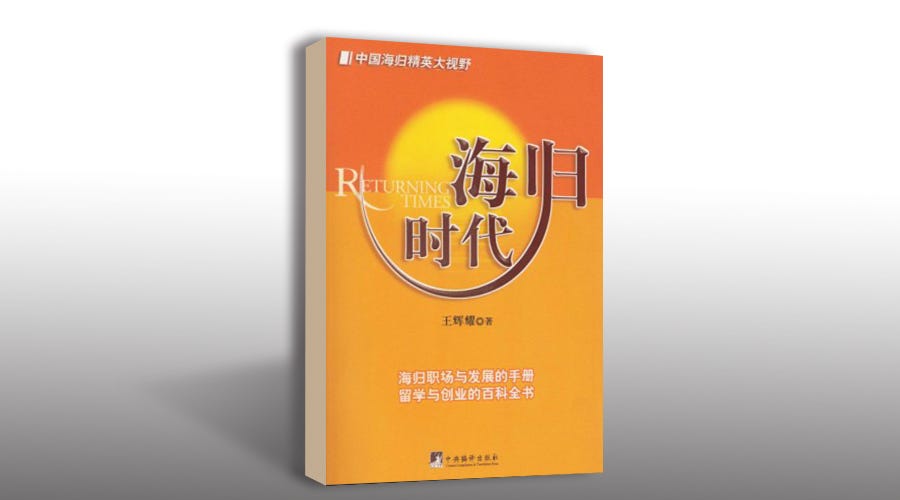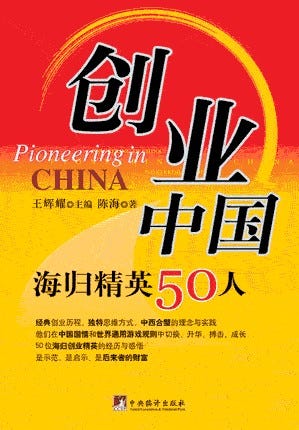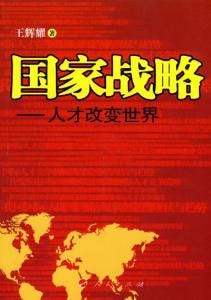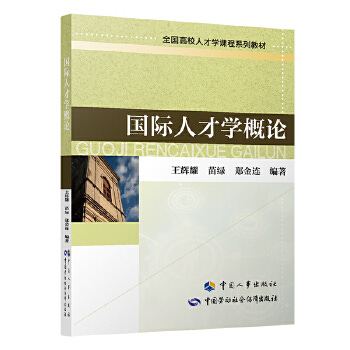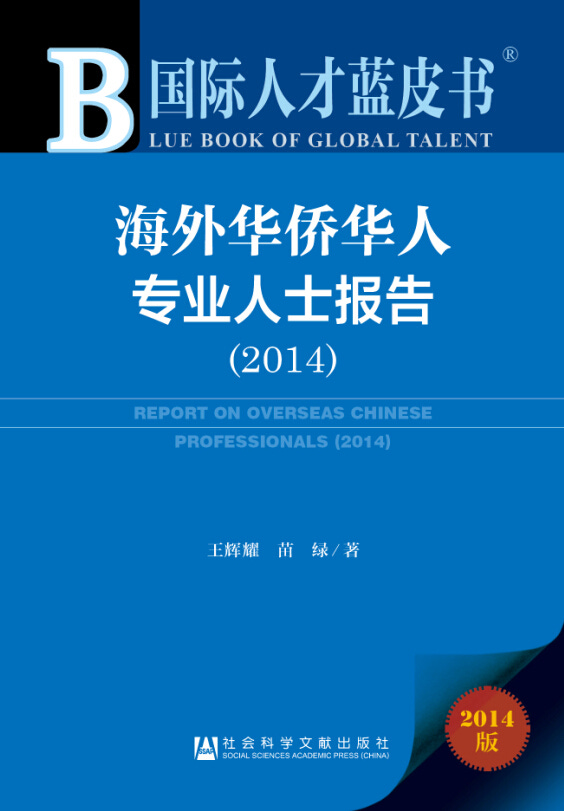Role of returnee students in education, technological development, and opening up of China
Round-up of a recent seminar on the trends and dynamics of overseas returnees in China
At a time of rising domestic suspicion towards Chinese students in the West, on Dec. 28, 2023, the seminar titled "Chinese Returnees Studies and International People-to-People Exchanges" took place at the Center for China & Globalization (CCG)
The seminar focused on the contributions of Chinese students educated abroad to the development of China and the country's communication with the world, especially in light of President Xi Jinping's announcement in San Francisco that "China is ready to invite 50,000 young Americans to China on exchange and study programs in the next five years."
The event featured speeches by Henry Huiyao Wang, CCG President; David Zweig, Professor Emeritus at Hong Kong University of Science and Technology (HKUST) and CCG Vice President; and Mabel Lu Miao, CCG Secretary-General. These were followed by a panel discussion of the three.
The event was covered by China News Service, www.china.com.cn under the auspices of the State Council Information Office, and China Scholars Abroad under the auspices of the Ministry of Education. The full video of the event is available on CCG's official WeChat account domestically and YouTube.
First, Henry Huiyao Wang, President of CCG, delivered a speech titled “Twenty Years of Researching Chinese Returnees Students,” highlighting CCG’s continuous dedication to researching and shaping the narrative around Chinese students studying abroad and their subsequent contributions upon returning to China.
The first systematic work of CCG on Chinese returnees was "海归时代 Returning Times" in 2004. This book was the first in China to provide a comprehensive overview of contemporary Chinese returnees, introducing the concept of "Haigui" or "sea turtles," a term now synonymous with returned overseas students. The origin of this term can be traced back to an early dialogue on Phoenix TV, where CCG first mentioned "Haigui."
At the same time, around 2004, the Central Compilation & Translation Press published another book of CCG titled "创业中国 Pioneering in China." This book selected 50 returnees as case studies to systematically summarize the experiences of the Haigui community. Published nearly 20 years ago, this book was part of a significant effort at that time.
In 2009, CCG published "人才战争 Talent War" through CITIC Press Group. This book had a significant impact and was reissued in 2018 by the People's Oriental Publishing & Media as "人才战争2.0 Talent War 2.0." "Talent War" was the first book in China to systematically analyze the intensifying global competition in talent acquisition.
CCG also published a book called "国家战略 National Strategy," in 2010 by People's Publishing House, which focused on the study of returnee talent. This book gained attention from various ministries, with the former CPC Politburo Standing Committee member and then Guangdong Provincial Party Secretary Wang Yang personally recommending it. It emphasizes the need to cultivate and attract international talent and to establish a talent system in China with competitive international advantages.
The CCG's research has not only provided insights into the policy of "attracting global talents" but also contributed to the development of international talent studies and the concept of talent globalization. CCG's initiatives, like the establishment of the Association of Global Talent Organizations (AGTO), highlight its commitment to understanding and promoting the role of global talent in contemporary society.
In 2020, the China Human Resources Publishing House under the Ministry of Human Resources and Social Security of China published the first textbook in China titled "国际人才学概论 An Introduction to International Talent Studies." This book provides systematic management thoughts and technical methods for the mobility and development of international talents, as well as for the practical management of their competition. It fills a gap in China's specialized textbooks on international talent research, which is noteworthy. In this area, CCG has conducted a lot of pioneering work.
One of CCG’s most notable contributions has been its research reports, starting as early as 2009 when CCG released the "中国留学人才发展报告 The Report on the Development of Chinese Overseas Educated Talent." In 2012, CCG systematically published a series of blue books through the Social Sciences Academic Press, compiling about ten reports on study abroad and returnee development. Over the past decade, CCG has also published nearly ten reports on immigration and regional talent competitiveness, covering various aspects of student development.
CCG also proposed the concept of the era of talent globalization, emphasizing the circular flow of international talent, as well as the concept of a Talent WTO, aiming to establish a specialized international organization to maintain the order of talent mobility and competition.
CCG has also conducted extensive policy research that directly led to the establishment of the National Immigration Administration.
Next, Professor David Zweig, Professor Emeritus at Hong Kong University of Science and Technology (HKUST) and CCG Vice President delivered a presentation focusing on his extensive research on Chinese scholars returning from abroad, underpinned by data.
Prof. Zweig's interest in the study of overseas returnees is rooted in his personal experiences and a broader curiosity about transnational relations. As a Canadian who studied in China and graduated from Peking University in 1976, his initial research in Jiangsu Province focused on how returnees benefit their home countries, especially China, by introducing new technologies and innovations.
Prof. Zweig introduced his "Shortage Theory," which was discovered during his visit to the Changchun Institute of Applied Chemistry, Chinese Academy of Sciences (CAS) in 2003. He learned that researchers sought "缺门 gaps" — areas where China was lacking — during their time abroad. This theory's first element revolves around the Chinese government's recognition of these "gaps" and its efforts to attract talent to address these shortages through targeted policies and incentives.
The second aspect of the "Shortage Theory" concerns the environment — both the macro and micro-environments. Chinese scientists, scholars, and businesspeople will return if these environments allow them to leverage their advanced skills and knowledge. However, integration challenges, cultural and bureaucratic hurdles, and the need for a supportive environment are significant concerns. In 2011, a survey by the Organization Department of the Communist Party of China highlighted complex personal ties as a common challenge for returnees, emphasizing the importance of interpersonal relationships in Chinese culture.
The third element of the "Shortage Theory" is the rewards or remuneration, noting that unmet promises by domestic organizations can lead to returnee dissatisfaction.
Prof. Zweig's initial research, including China's Brain Drain to the United States, and "Parking on the Doorstep: Mainlanders in Hong Kong" conference paper, laid the groundwork for his subsequent work planned to be published next year, tentatively subtitled "Towards a Theory of Shortage." The book will focus on the concept of talent scarcity and propose solutions to mitigate this issue.
Firstly, the book outlines three institutional reforms designed to foster an environment that attracts overseas scholars back to China: the implementation of a part-time dean system, the establishment of special academic zones, and the introduction of a double tenure system. These reforms aim to ensure quick promotions for returnees, enhancing the appeal of returning to China for professional advancement. Statistical analysis supports this approach, showing that university presidents with international experience, or those appointed from outside the university system, are significantly more inclined to employ overseas PhDs and implement these reforms.
Secondly, the book will look into the phenomenon that overseas returnees got promoted more quickly than their domestic counterparts. Prof. Zweig was worried that such promotions may not always be merited on the basis of individual creativity and innovation. A Ph.D. student's work is often heavily influenced by their mentor's guidance, which may not necessarily prepare them for independent research.
Thirdly, the book will touch on the returned entrepreneurs. Initially, around 2004, even second-class technology from abroad could spur innovation and business success within the country. However, by 2020-21, The standard for technology brought back by overseas returnees had significantly heightened. The narrative had evolved from "New Tech for China" to a demand for globally competitive, cutting-edge innovations, indicating that merely filling local technological gaps was no longer sufficient.

The last topic the book will address is about those who returned to work. Contrary to reports around 2004 by China Daily, which likened overseas Master's graduates to "seaweed" or "kelp" – terms suggesting they were less valued in the job market compared to their doctoral counterparts – Professor Zweig's findings reveal a different reality. He found that a significant majority (90%) of overseas students secured employment within six months of returning, challenging the notion of their supposed unemployment struggle.

Moreover, the analysis extends to the economic benefits of studying abroad. Data from 2006 indicated that individuals with foreign Master's degrees earned nearly double the salary of their counterparts with domestic degrees. This trend continued, albeit at a slightly lower rate, as evidenced by a large-scale survey conducted by the Southwestern University of Finance and Economics in 2015. It found that returnees with overseas Master's degrees earned 19.3% more than those who did not study abroad. Despite the decrease from earlier figures, the persistent salary advantage suggests that international education remains a valuable investment for Chinese students.

The third session of the event features a speech delivered by Mabel Lu Miao, Secretary-General of CCG, which highlights CCG's research on Chinese returnees.
The CCG's studies, encompassing 18 Blue Books and annual reports since 2012, focus on the diverse impacts of returnees in China, covering their roles in entrepreneurship, employment, and cultural integration. The " 海归发展报告 Annual Report on the Development of Chinese Returnees" series began in 2012, starting with the "中国海归创业发展报告 Annual Report on Chinese Returnee Entrepreneurship," was the first blue book in China to systematically study the returnee community and their entrepreneurial endeavors.
In 2017, CCG collaborated with Zhaopin.com to conduct a survey on the employment and entrepreneurship of Chinese returnees, leading to further research in 2018 highlighting an increased focus among returnees on the safety of studying abroad. By 2019, the research pointed to a shift in employment priorities among returnees, with an international perspective becoming more valued than language skills, though challenges in job market fit persisted.In 2019,
In 2020, CCG collaborated with LinkedIn to release a study on the career development prospects for Chinese and global graduates. This report noted a healthy circulation of talent, with students from the top ten universities (U10) studying abroad and then returning for employment.
The scope of CCG's research extends to overseas education, beginning with the "中国留学发展报告 2012 Report on the Development of Chinese Students Studying Abroad," which was the first in a series in China to systematically examine the current status, characteristics, and key issues of overseas education development. This report, and its subsequent editions through subsequent years, have tracked trends such as the increasing number of younger students studying abroad, the growth in students from Belt and Road Initiative countries studying in China, and the evolving reasons for return, including family considerations.
CCG also published a book titled "全球国际学校发展与中国实践 The Global Development of International Schools and Practice in China." addressing the upstream factors influencing Chinese students' decision to study abroad. This work points out China's leading position in the number of English international schools globally and discusses the potential for establishing Chinese international schools overseas.
Another significant publication, titled "国际学生来华留学与发展 International Students in China and Their Career Development," focuses on international students coming to China, emphasizing the need to enhance China's appeal to students from strategically important countries. This reverse "sea turtle" phenomenon represents a vital area of China's international education strategy.
CCG's research also covers global and Chinese international migration trends, including the "World Migration Report" in collaboration with the International Organization for Migration (IOM) and the "Annual Report on Chinese International Migration," which places a particular emphasis on returnees.
In 2014, the "海外华侨华人专业人士报告 Report on Overseas Chinese Professionals" was released, revealing that approximately 4 million Chinese professionals abroad contribute significantly to the knowledge and expertise of the Chinese higher-educated class.
Furthermore, the "中国区域人才竞争力报告2017 Report on China's Regional International Talent Competitiveness (2017)" analyzed the development of returnee talents at the regional level, offering insights into regional competitiveness in attracting and retaining international talent.
Through these initiatives, CCG has established itself as a leading institution in researching the dynamics of Chinese returnees and their impact on China's socio-economic landscape, advocating for policies and practices that enhance the value of international education and talent mobility.
Dr. Mabel Lu Miao concluded her speech by outlining the ten key trends in the development of Chinese returnees, drawing from CCG's comprehensive research. As a "do tank," CCG's active promotion of returnee studies and engagement in related activities underscores its commitment to fostering the growth of this dynamic field in China.
The last session of the event is a panel discussion of David Zweig, Henry Huiyao Wang, and Mabel Lu Miao.
Henry Huiyao Wang emphasizes the significance of Chinese returnees in the context of China's 40 years of opening up.
Mabel Lu Miao stresses the importance of people mobility and enterprise globalization as pillars of the CCG's globalization theory. She highlights the role of student exchanges in fostering mutual understanding and strengthening bilateral relations, particularly between China and the U.S. Miao also references China's historical efforts in inviting foreign students, underscoring the potential of these initiatives to bridge cultural gaps and promote global peace.
David Zweig discusses the factors influencing the return of Chinese students from abroad, noting that government influence is often less significant than other factors such as market opportunities, family ties, and work environments. He also touches on the impact of geopolitical tensions on the global flow of talent, suggesting that these tensions could either hinder or facilitate the return of Chinese talent.
Pre-registration for the 10th China and Globalization Forum scheduled for May 25-26





